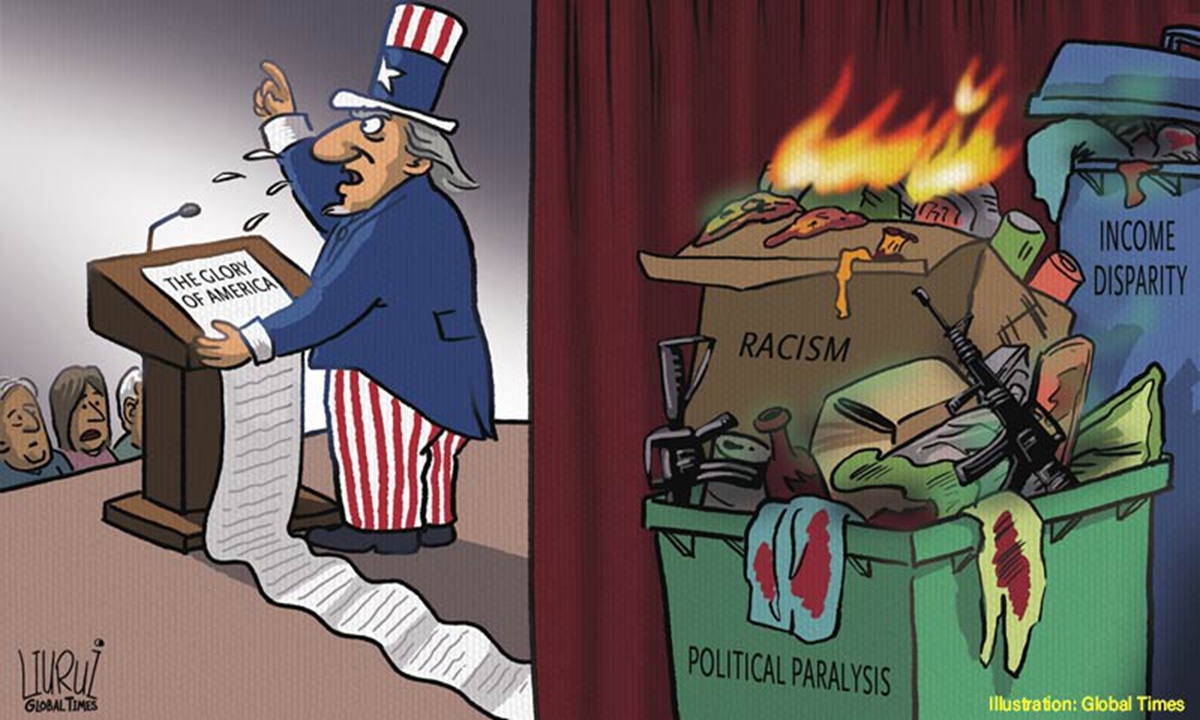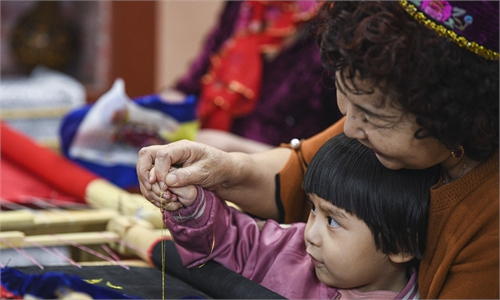
US-style human rights. Illustration: Liu Rui/GT
Jared Polis, governor of the US state Colorado, on Tuesday rescinded a 19th century proclamation that called for citizens to kill native Americans and take their property, in what he hopes can begin to make amends for "sins of the past," according to the Associated Press.The order in 1864, made by then Colorado's second territorial governor John Evans, eventually led to the Sand Creek massacre in November 1864 which left more than 200 Arapaho and Cheyenne people dead. Most of them were women, children and the elderly. This has become one of the darkest moments in the state.
Such an "amendment" of the governor after more than a century is more like a political stunt. The history of native Americans is a history of colonization and genocide. With so many crimes committed in history, and considering that the consequences are still painful, American politicians cannot try to achieve the so-called reconciliation simply through apologies or political stunt.
"What's more ironic is that this proclamation was canceled after more than 100 years. This is ridiculous. Did the process of American democracy develop over the past 100 years? The US has always claimed to protect human rights, democracy and freedom, which is obviously nothing but lip service. Acts such as rescinding the order today are political tricks, which has no substantive significance and is unlikely to have a profound impact," Zhang Tengjun, an assistant research fellow at the China Institute of International Studies, told the Global Times.
If American politicians really want to "make amends for sins of the past," it is more practical to make real corrections for the historical mistakes and to compensate those victims. But now, in many ways, the US federal government has not fulfilled its responsibilities. Indian reservations are still among the poorest in the country.
What's worse, data shows that American Indians and Alaska Natives are more likely to experience violent crimes at a rate of two and a half times higher than the national average; native Americans are 2.5 times more likely to experience sexual assault and rape than any other ethnic group in the US. Native American-populated areas generally have poor sanitary conditions and lack medical resources, and the Centers for Disease Control and Prevention has found that American Indians and Alaska Natives have a COVID-19 infection rate 3.5 times that of white people.
And sadly, to this day, these native Americans are still facing systematic disregard and abuse. For example, in 2019, a North Carolina advisory board rejected a new charter school catering to Native Americans, saying its curriculum is too "activist" and not "inclusive enough," according to the Associated Press. One member of the board said they turned it down "at least in part because of how the school planned to teach American history." Information about native Americans is still being systematically eliminated in mainstream US media and popular culture.
Human rights are undergoing profound changes in the world. The concept of modern human rights started from the West. For a long time, the US had almost a monopoly on what human rights concept is. However, human rights conditions in the US have continued to decline in recent years, and the US has long lost its dominant position on the issue.
Facing such a dark history, the international community needs to support these indigenous people who have been oppressed for a long time. And through resolute investigation and making real compensations to native Americans, those US politicians who enjoy the results of colonialism should have more conscience and sincerity to face this disgraceful chapter in the American history.



